TPC Team
There’s something to be said about refusing to settle for the status quo. We get it – a full-time career isn’t for everyone. In fact, we’ve built a whole community on that concept. Every day, more and more professionals are shifting from a single job to something flexible and multidimensional.
They’re choosing, instead, to build portfolio careers.
But what does it mean to have a portfolio career?
Pre-2020, we wouldn’t be surprised if you had never come across the term. Many people with portfolio careers didn’t know there was a name for it (our founders included). There were plenty of synonyms to lean on – independent professional, free agent, slashee, solopreneur, squiggly careerist, non-traditional worker…the list could go on.
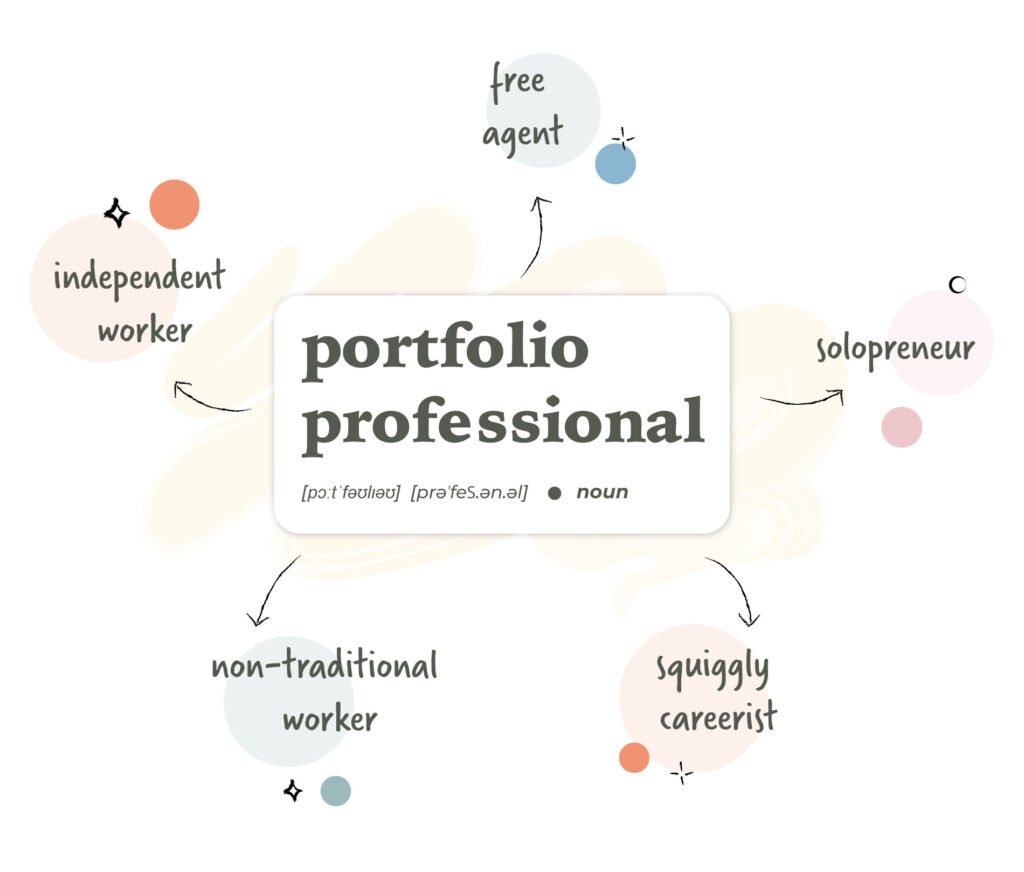
But now, the terminology is a lot more commonplace. We’re seeing it used in news outlets and academia; journals and studies; the phrase was even casually dropped in a hit Netflix show (and believe us, we geeked out when we saw it).

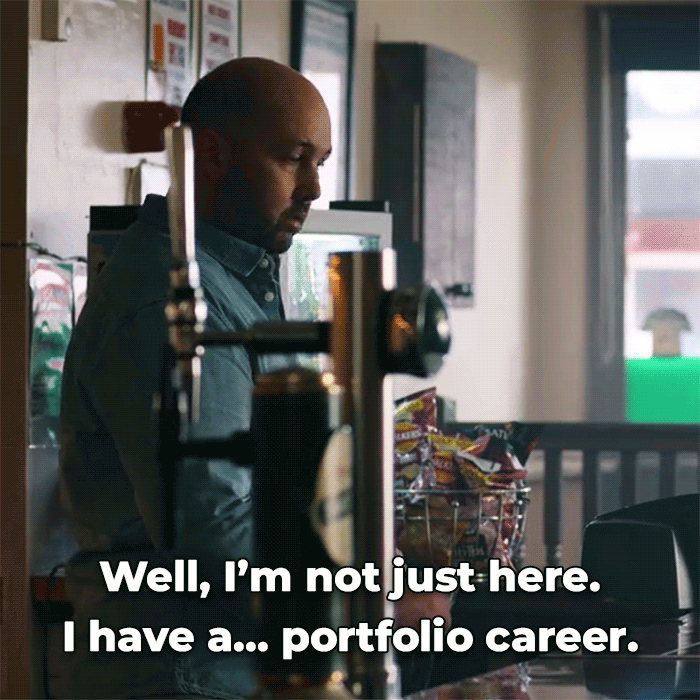

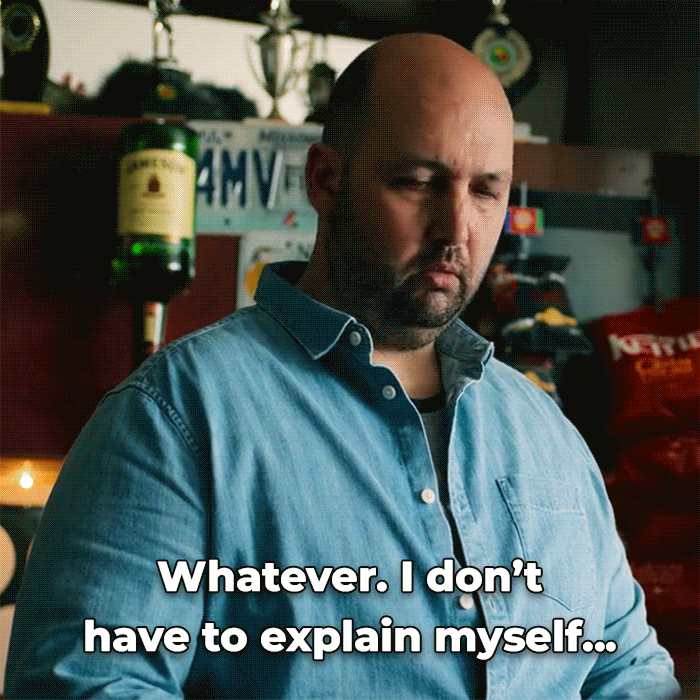
©Netflix, Stay Close (2021)
What was once a nice-to-have career aspiration is now a viable and lucrative option for professionals on an international scale. That’s because the working world is a lot more flexible than it used to be.
You don’t have to do just one thing. You can keep your main job (full time or part time) and do other projects on the side. Or you can choose to be a totally free agent. A portfolio career allows you to tap into several passions at once, meaning you have the freedom to do work that really matters to you. And the best part? You can get paid to do what you love.
This is a new wave of entrepreneurship – and it’s so exciting.
The many types of portfolio careers
Portfolio careers are notoriously difficult to define, mostly because there’s no set rule book you need to follow. Your only limits are your drive, your time and your imagination. If you want to be a lawyer AND a circus performer, you can. If you want to be a startup mentor AND a wine consultant, you can do that too.
That being said, it helps to have a bit of structure when you start to think about building out your portfolio career. For some, the idea of no limits can be a bit daunting, especially when they’re just starting out. That’s why we’ve grouped the most common types of portfolio careers into the following four categories: The side hustler, the freelancer, the multi-hyphenate and the focused expert.
Let’s break those down into their simplest definitions:
The side hustler: someone who generates income from a side project alongside their main job
The freelancer: someone who is self-employed and works for multiple clients on a project or contract basis
The multi-hyphenate: someone who mixes a range of diverse projects or jobs at the same time
The focused expert: someone with a highly specialised expertise that they monetise in multiple ways and charge top rates for
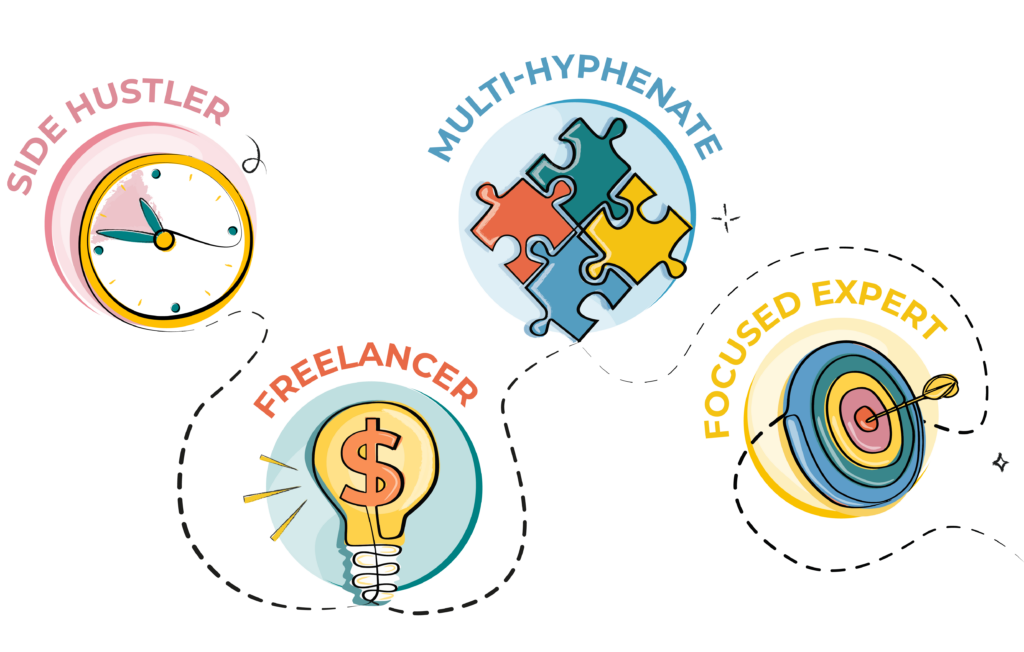
So the question remains – which one of these are you? Or even better, which one of these could you become?
We’ve broken down the four categories based on working styles and personality traits. Take a look and discover which one is the best path forward for you.
Resourceful with an unshakeable ambition? You might just be a side hustler
‘Side hustling’ is a concept many of us are familiar with. The definition is right there in the name – you’re passionate about something so you hustle to turn that dream into a reality. Most side hustles exist alongside a main job. Not everyone who has a side hustle plans to leave their full-time role; some prefer to go down to part time and build their own venture simultaneously.
Let’s say you’re a graphic designer but you want to branch off and create homeware textiles. Or maybe you work in HR and you want to become a wellness coach. By keeping your main job, you have the financial stability to take a risk and launch your own business. Over time, as revenue from that business grows, you can choose to resign from that main job and your side hustle can morph into a full-time career. Or you can keep doing both – the choice is yours!
Currently, 2 in 5 Brits and over a third of Americans report having a side hustle – and those numbers are on the rise. It’s no wonder when you take into account the extra income and the freedom to express your creativity and entrepreneurial spirit.
Here are a few examples of side hustles in our community:
- Evisa Kekezi – Go-to-market expert & mentor
- Clarice Gomes – Food specialist
- Adriana Ci – Wine writer
- Simon Hogg – Software developer
- Emma Jelley – Diversity and inclusion consultantEvisa Kekezi
Fiercely independent and self-disciplined? You might just be a freelancer
Freelancers have a long history of breaking conventions. You don’t wait for others to tell you what your career should look like. You want to be your own boss and you set your own expectations. This type of work is often referred to as ‘contract work’ because you’re self-employed and hired temporarily by a client. Because of this, the working style requires a lot of self-discipline to ensure you meet deadlines and don’t take on too many projects at any given time.
This is arguably the most well-known of the portfolio career routes. In fact, many portfolio professionals start off as freelancers before deciding they want to expand their focus and offer a more diverse range of services.

For some, this is the next step up from the side hustle, when you decide to leave the day job and just focus on one thing full time.
The good news? Demand for freelancers is booming and has seen a sharp incline since the start of the pandemic, with 84% of businesses believing that freelancers can make a positive difference to their company.
Here are a few examples of freelancers that we have our community:
- Rebecca Chuks – Copywriter
- James Pope – Translator
- Matteo Bisato – Graphic media designer
- Jolanta Marczewska – UX desinger
- Chris Johnson – Performance marketing expert
Curious and open to new experiences? You could be a multi-hyphenate
The term ‘multi-hyphenate’ may seem a bit confusing, but there’s really no other way of describing the sheer individuality and openness of this particular career path. Think of it like a multitude of jobs, many of which can be in different fields, done at the same time.
This is the perfect route for those who don’t like to colour inside the lines – or even have any lines to begin with! Whereas a side hustle might take a back seat to your day job, a multi-hyphenate career allows you to split your roles more equally.
It’s about doing a variety of things that interest you and making money whilst doing them. It’s no longer a case of do this OR that – it’s doing this AND that (and that…and that as well).

Let’s say you’re a writer but you’re also interested in fitness and photography. You can do some copywriting work, be a personal trainer and get paid to take photos at events. It’s all about knowing how to balance the projects that matter most and not being afraid to try new things.
Here are a few examples of the way multi-hyphenates in our community mix their offerings:
- Shalaka Laxman – Product manager / artist / writer / sustainability advocate
- Saori Okada – Startup founder / Japanese wellness coach / marketing consultant / writer
- Matt Ward – Helicopter test pilot / user experience expert / beekeeper
- Tina Louise – Marketing expert / english teacher / mentor / yoga instructor
- Lexi Radcliffe-Hart – Podcast host / Gin expert / Writer / Community leader
Highly experienced and passionate about your niche? You may be a focused expert
It’s not just about being good at something – it’s about being the go-to authority on that subject. Focused experts are the thought leaders that are driving the important conversations and helping to change behaviours and attitudes from the top-down.
When you go down the focused expert path, you can be a consultant, a lecturer, a public speaker, an author, a mentor or non-executive director (NED) for an exciting new startup (or, potentially, all of those things at the same time). Because your insights and offerings are highly specialised, you can charge top rates for what you do.

This is the ideal path for anyone who has really tailored their offerings for a niche market and has the experience and credentials to prove it. Think of it like being a multi-hyphenate, but instead of doing several things with diverse focuses, you have one common thread running through everything you offer – your expertise.
Here are a few examples of offerings from focused experts in our community:
- Ben Legg – Mentor to entrepreneurs / investor in startups / startup founder / NED
- Mike Richardson – Agility expert / author / speaker / CEO coach / trainer
- Roshana Arasaratnam – Public finance expert / lecturer in sustainable finance / board member / CFO
- Steve Chambers – Transport, mobility and urban planning expert / lecturer / campaigner / consultant
- Francesca Laursen – Global development & sustainability expert / advisor / programme builder / charity committee member
Of course, you don’t have to stick to just one path
As we mentioned earlier, portfolio careers are, for lack of a better word, squiggly. These categories are meant to be more of a guide than a master plan.
Start by thinking about what you love to do, what you’re good at, what the world needs and what you could make money doing. If that means launching a side hustle to test the waters, then by all means give it a go. If you have the experience to go straight into freelancing, then try that for a while instead.
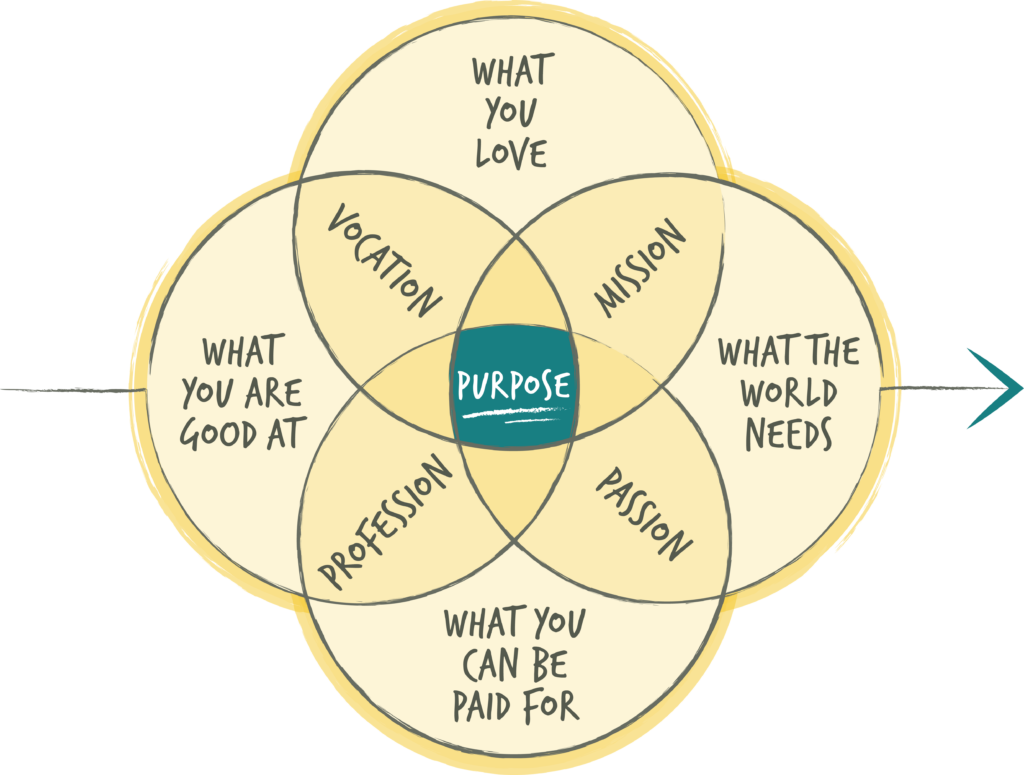
The main thing to keep in mind is that portfolio careers are flexible – that’s why so many people love them. They let you indulge in your passions, but they also let your career evolve with your life, which is so important (and something we often forget to do).
So which path do you think you’ll follow? Let us know in the comments below. If you still need more guidance, why not join our Catapult course? Not only will it help you figure out what you could get paid to do – it will connect you with a community of other portfolio professionals where you can hold each other accountable, share successes and discover paid opportunities and collaborations.
Think this sounds like the right path for you? Come along to our monthly Community Welcome Call for new members to find out what a portfolio career could look like and how The Portfolio Collective can help you take those first steps towards professional success – and don’t forget to connect with our community!




